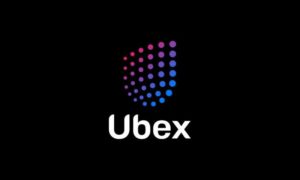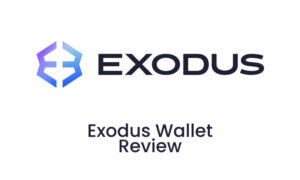Interview With Ubex

Ubex is a global decentralised advertising exchange that utilizes artificial intelligence. With their ICO underway, we sat down with Ubex to ask them about the technology behind their project.
Bitcoin Chaser: Where did you get the idea for UBEX?
Ubex: All of us, who are involved in this project, we have in-depth knowledge of the advertising market. We know the problems that publishers and advertisers face. We ourselves were advertisers and we too faced both fraud and inaccurate analytics and so on. So, it was rather obvious for us to join forces to combat the evils the market faces and create a product that would bring transparency, fairness and effectiveness to the market. Given our knowledge of advertising and its specifics, and our technical expertise, the combination seemed perfect.
BC: Your business seems to offer companies the ability to directly target adverts using ‘blockchain and neural networks’. Can you briefly describe what you mean by this?
Ubex: The blockchain basis for our platform provides immutability and transparency of transactions, meaning all participants of the platform no longer have to worry about the trust factor, and will get instantaneous payouts via smart contracts. The neural network provides the analysis of all incoming masses of data and conducts calculations that automatically match the best and most relevant offers of some platform participants with the demands of others. By analyzing the incoming data and taking into account the specifics of criteria entered by participants, the neural network will automatically find the most efficient solutions for all involved.
BC: You adverts are said to reach the target market based on location, gender, age and interests – but where do you get this data? do you get permission from the user? do you reward the user for making it available to them?
Ubex: We are using much more advanced datasets than simply gender, age and location. We trace the consumer behavior. Sometimes minor combinations, like moving from one site to other or unexpected time of the visit or increase of purchase of certain good might or even a misspelling of a word give key to AI to understand the current needs and wants of the internet user. A lot of data is freely available on the market as users often voluntarily provide it when registering on various websites that might be part of our network. We call this source Data mining and remunerate the website owners. Second source are our partners that need our data processing abilities and finally data is purchased on the market from specialized companies that hunt for it.
BC: You appear to track a users search history, file downloads and app installs as well as online purchases in order to gauge their interests. How do you do this? It is a one-off action or repeated over time? Is a user aware this is happening?
Ubex: We are going to track users’ activity only after a redirect to advertiser’s website if the advertiser has installed the appropriate javascript code during their campaign’s creation. Moreover all these actions will be tracked only on the advertiser’s website and the advertiser should include appropriate text in his privacy policy to inform his users. To gather users’, interests we are going to analyze the users’ data available on the publisher’s website if the publisher has installed the appropriate javascript code as well. The publishers’ privacy policy should also include that the user’s data can be used for targeted advertising.
BC: You refer to users as ‘cookie-identifiers’, what does this mean exactly?
Ubex: It means browser cookies. Simple as that.
BC: You state that you will correlate online and offline data. We know the offline is by search history, online purchases, file downloads. But how do you gain offline data?
Ubex: Offline data can be gathered only by the publisher on his website. This data can be added to requests and used to get more precise results. The publisher’s privacy policy should point this out as well.
BC: You state they are saving user information in a database. For how long? is it secure? You also state it is ‘transparent for all’; who exactly is ‘all’? could it actually make personal data insecure through public access?
Ubex: It is the publisher’s responsibility and it depends on their decisions. We just need this data, if it is available, to conduct our targeting operations. We don’t know how the publishers store it. And we cannot and will not be held accountable for any infractions on their part.
BC: How do you see the recent GDPR (General Data Protection Regulation) changes impacting your business operations? Or will you chose not to work in Europe? (they change May 25th 2018)
Ubex: These regulations will be fully complied with on our part if they pertain to us in any way, as we aim to work on a fully legal basis in all aspects of our operations.
BC: You offer a ‘cost-per-action’ model as opposed to per-click payment model. But surely there is a fee to be on your books and participate in the auction stage of their business? I.e. the auction between companies to become the advert on the screen to their target client if more than once firm has selected that target market.
Ubex: The fee we will charge is incomparably small if we look at conventional market structures and schemes. In fact, the participants of these auctions will barely notice the effects of our commissions that we charge in platform payment tokens.
BC: How does the auction process work? It is obviously automated so does a firm say we will never bid any higher than X to be the advert displayed. In which case if more than one company have the same target market; how do you overcome the issue of one company always prevailing on auction? Will you notify the other and have a continual bidding war or do they alternate?
Ubex: The bidding process is fully automated for a reason. Each participant will set specific targets in their parameter settings on their user dashboards. There can be no wars, as the bidding ends the moment one party agrees to have their ad displayed at a specific price, or when the bidding price has reached an unacceptable level set in the parameters for the bid. And there can be no such situation when one company wins all the time no matter what their budget is. That is because there are many more factors involved in the bidding process than just the price ceiling. These factors are all taken into consideration by the neural network and the AI to maximize matching of offers with requirements.
BC: Two of the risks to you identified in your white paper are failure of a company to pay for advertising and late payment. It appears you overcome this by having the payment made to Ubex after the KPI targets have been met, but the monies are held in escrow prior to this to prove payment is available. Do you plan to utilize RAIDEN or Lightning for this function?
Ubex: This is where blockchain comes into action. We pay using online services and instantly without any delays. In addition, all transactions on the Ubex platform are performed in UBEX Tokens as soon as the transaction is confirmed. The smart contract withdraws the UBEX Tokens from the advertiser’s account in favor of the platform that is showing the advertising.
BC: Where will you actually be putting these adverts? What types of adverts? Banners? Pop-ups? Emails?
Ubex: The advertiser will decide what kind of advertisement formats they wish to have displayed. The advertisements themselves will be placed on ad slots available on the websites of publishers. It is all about matching supply and demand with the introduction of a degree of flexibility in choice of display manner.
BC: How much information do you need in order to profile a market segment?
Ubex: In today’s market conditions, all of the information necessary to market a segment of a population is divided between aggregated statistical and analytical data, and the expertise of the marketing staff. Together, these two factors create a profile. Our system will act without the subjective factor of the marketing staff, as it will aggregate statistical data and match it with the requirements of a specific advertiser on a purely mathematical basis. In fact, it is the advertiser that will select which market segment they wish to target.
BC: Your Ubex Data Mining (UDM) strategy; you advise that 5% of your transaction income is split between websites who allow access to data you can use to train your system on behavioral decision-making and user data evaluation. Can you expand on who these site owners are? What types of businesses you want to partner with and what kind of information you require? Are you targeting anyone in particular?
Ubex: The websites we wish to see on our platform as participants are of every kind imaginable that cater to legal and respectful businesses. The owners of these websites can be businesses or private individuals, webmasters, hosting service providers and so on. We will partner with reliable channels as our scoring and reputation system will do the rest in determining those who are seriously intent on working with us. And the information we require will pertain to user data that can be used to better target specific audiences.
BC: How long will you train the system? How long have you been training it? when does it release?
Ubex: The training will never stop as long as the system is operational. We have to take into consideration that the market is not static and tastes and audience preferences change over time. This is an ongoing process, like training medical personnel, who have to learn over the course of their entire lifetimes to stay up to date with modern medical research and methodologies. We have been training our system for some time and its release date is scheduled in full by the middle of 2019.
BC: Advanced Decentralized Advertising Marketing (ADAM), seems to make decisions based on the data stored in the blockchain as well as on the model data of the neural network stored internally. What are you actually storing in the blockchain? Do you see any risks of overloading the ethereum network?
Ubex: We store platform participant information and transactions on the blockchain. This information has to be immutable and transparent to ensure fairness and trust for all platform participants. And there can be no risk of overloading the network on our part, as we are both scalable and our transactions are not as massive in scale as some. In addition, the speed at which our AI calculates and executes all transactions within the system will ensure that we will not experience any transaction backlogs.
BC: The example of you neural network lists IOS mobile, chrome and safari as its tools for data display. Is this an exhaustive list or are these just examples?
Ubex: It is by no means an exhaustive list, as we will be expanding to Asian and other markets, thus we will have to incorporate other browsers onto the list to ensure the flexibility of our platform for our users.









